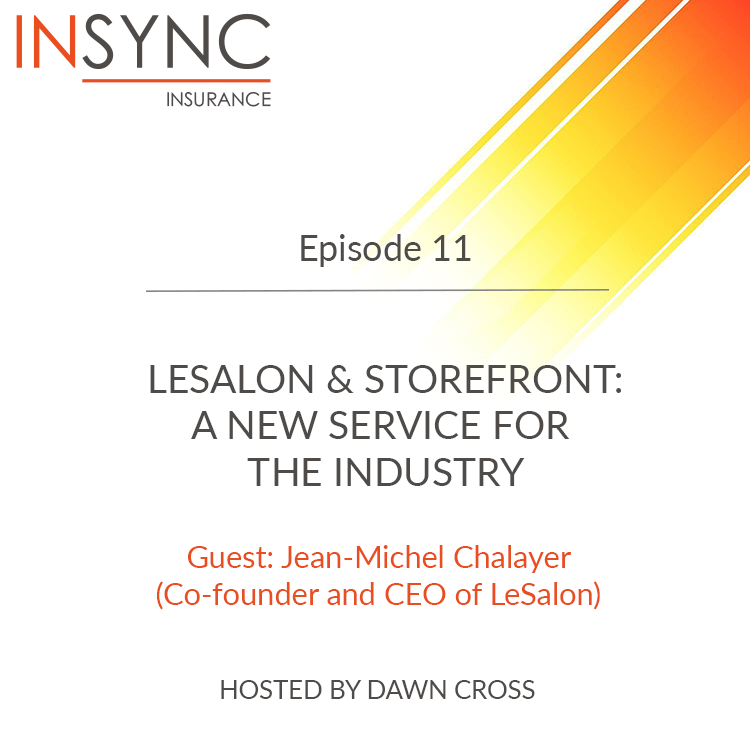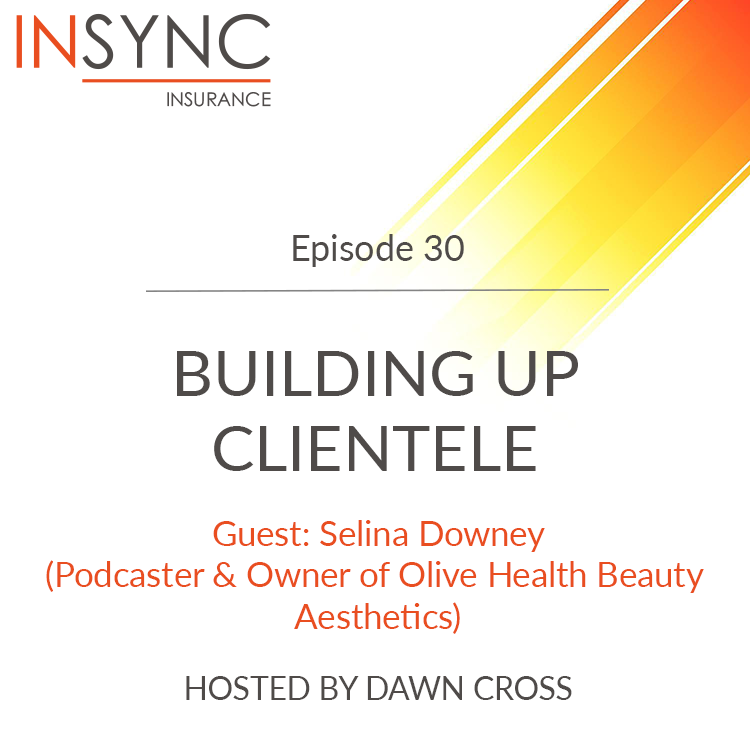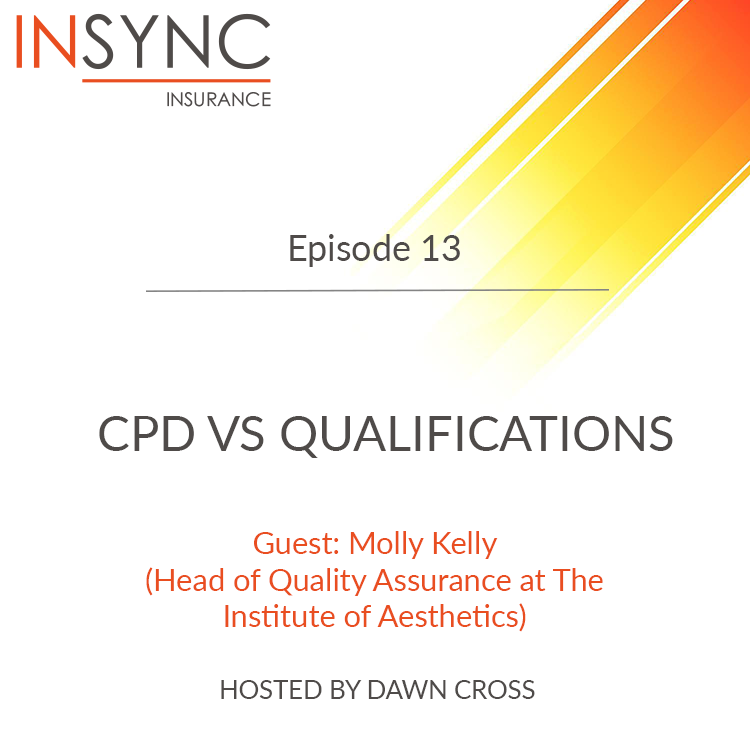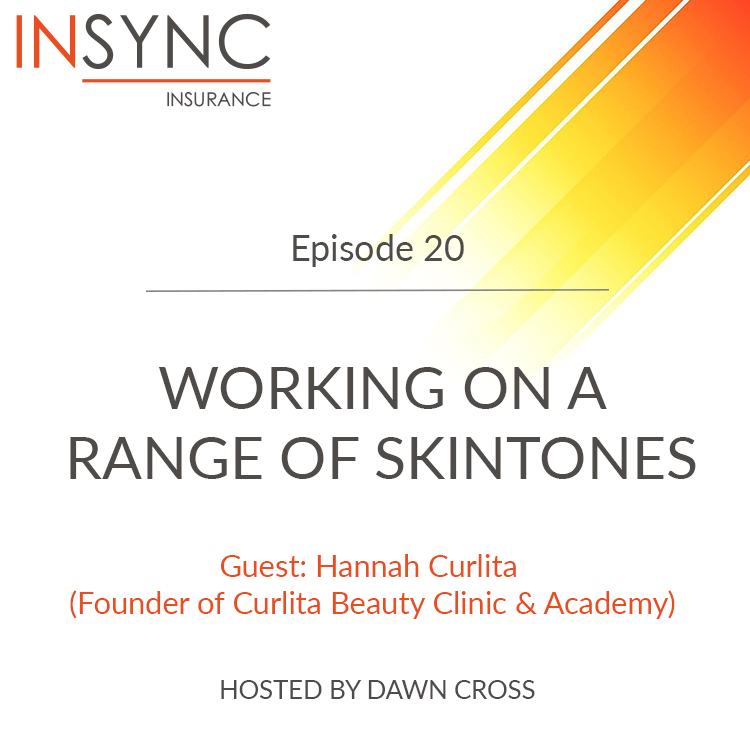Episode Transcript
Podcast transcriptions
Dawn Cross: Welcome to the Insync Insurance podcast. I'm your host Dawn Cross. And today we'll be discussing the importance of consent forms. Here today, we have guest Will Marshall, who's a partner at DWF law LL P. If you enjoy our podcast, make sure to leave a rating on your favorite podcast directory. We're here for another podcast episode if I could ask you to please introduce yourself and what you get up to.
Will Marshall: Thank you, Dawn. My name's Will Marshall. I'm a solicitor. I'm a partner in a law firm called DWF law, LL P and I specialise in healthcare litigation. I've worked with, for a number of cases with Insync over the years, I work closely with Insync's medical malpractice insurers, and I specialise in cases against all sorts of healthcare entities, hospitals, doctors, clinicians, and also in the cosmetic industry as well.
Dawn Cross: Wow, that's amazing. So I guess our topic today was, we wanted to speak a bit more about the importance of having and using consent forms, especially if you are in the beauty and aesthetics industry. So kind of getting back to basics really is kind of, you know, what is a consent form?
Will Marshall: Well, I, I think the legal definition is a consent form is simply a form which documents the client's agreement to go ahead with a particular procedure or a course of treatment. So it's quite a simple document in many respects. But I think it's important to just to make it clear that a signed consent form is not the same as a legal waiver. If for example, a client signs a consent form, but hasn't received the information on which to properly base that decision and to make an informed decision, then the consent may not be valid. It's also the case that clients can, and often do, have a change of heart or change their minds.
And they're entitled to do that. If they've signed a consent form, it doesn't oblige them to go ahead with the treatment. So I think it's important to see the consent form more as acting as an aid memoir to the professional, to the beautician or to the practitioner, but also to the client. And it does this by providing a checklist of the kind of information that clients should be offered.
And by enabling the client to have a written record of the main points that have been discussed about the proposed treatment. It's always good practice to provide a client with a copy of the signed consent form. But the important point to emphasize which I will be doing throughout this podcast is that a signed consent form is in no way, a substitute for face to face discussions with the client.
Dawn Cross: I completely agree. It's really great as well, to kind of understand how it is slightly different from a legal waiver as well. I think, especially when it comes to any sort of legal documents, you know, unless you're really well versed like yourself, it's a bit hard to understand what is what, and you know, what is a good form and a bad form which is why we're doing this today, really. Especially those who are training up in beauty and aesthetics. You know, the last thing you're gonna think about is legalities and paperwork, which is, you know, very important. But you may not be legally minded as well. Not everyone understands
Will Marshall: I do think that it's beneficial to understand about consent forms. And it's very important to understand why it's beneficial to use these. Especially in the beauty and the aesthetics industry. You know, as I've said, filling in a consent form is not a substitute for a meaningful dialogue with a client that is tailored to that individual client's needs. But consent forms are a very useful prompt to share key information and also to record any decisions that have been made.
And that makes it easier. If the client is coming in for a course of repeat treatments to look back and see what the previous decisions have been. It's very important that there is sufficient time provided to the patient or the client to really understand their decision and to be comfortable about that decision and to have a gap between the consent and the treatment.
And so I think it's important, really important in this field that people providing this treatment should understand what the client's expectations of the treatment that they're seeking are and to manage those expectations. And the consent form is a very important, it's not the only, but it's an important part of this process.
Maintaining a record of the process that you have undergone in providing the information that will enable that client to make an informed choice about how they want to proceed. And that includes really importantly, a discussion about other available options to the client and in the context of the beauty and aesthetics industry, that includes very importantly, the option of no treatment and of not doing anything.
So I think that it's really important that you ensure that you've followed this process because that will not only mean that the client has fully understood and provided valid consent for it, but also to protect the professional. Because quite often in this particular context there may be other underlying reasons why a client is seeking a particular course of treatment.
There could be underlying psychological needs. And so it's very important to try and find out what it is that's important to this particular person. I also think it's very important in this market because the treatment is likely to have been marketed or advertised and there will have been certain claims made about the benefits of the treatment in that process. And that's a whole separate topic about advertising and marketing effectively medical or cosmetic procedures, but it, what it does mean in the context of a consent or obtaining a consent is that it's really crucial that the client fully understands the risks and the benefits of the procedure and that the advice that is given is impartial and it is recorded. So I think that in addition to completing a consent form, it's also important to have a record of the details of the consent discussion, because it's the consent discussion that is the key point in determining whether an individual has provided valid consent.
Dawn Cross: That's definitely key. I think you just smashed through my second question actually was, you know, why is it useful to use consent forms, which is brilliant because, you know, I think some people think, oh, it's just a bit of paperwork. So to kind of understand the full background is especially just so useful. So moving on, then I think I, our next question would be what should a consent form include then? I mean, everyone's a bit different, you know, depending on the treatments and stuff, but I'd love to know a bit of an idea of what you think should be included on a consent form.
Will Marshall: Yeah, sure. I, I mean, I think that there's, there's two elements to this really there's the consent form itself.
Which, as I said at the top is, you know, usually quite a relatively short and straightforward document. But I think that in terms of what goes on the form, there are certain sort of key points of best practice in any documentation that need to be followed. So generally speaking, I think you need to avoid abbreviations if you are describing or when you are describing the procedure or the treatment that you are going to be providing to your clients. It's important to use both medical and lay terms on the form. And then on the form itself, you would list the risks that have been discussed and the benefits that have been discussed if necessary, you would consider reconfirming the consent of the patient, if this is part of a course of treatment.
And I also think that it's very important that the consent form should include in this market an express signed declaration that a patient or a client has received the information that they need to receive in order to make an informed decision and to provide a valid consent. And usually in this context, that information would be provided verbally, of course, but then confirmed in either in a record that you don't normally keep detailed records for this kind of treatment. So in a aftercare pamphlet or in some literature that's provided to the client. And so if you include in the consent form the client has received, read, understood, discussed the risks and benefits. And, as set out in the information provided you can then sort of tie the two things together as really sort of comprising a record of the whole consent process. Because in order to get someone to sign a consent form, you need to have discussed with them the different options as we've just mentioned, including the option of no treatment.
If the client has a particularly strong reaction or feeling about a particular treatment or a risk that's being discussed that needs to be recorded. The sort of information that the client needs to know in order to provide their consent would include information about what they might expect to experience following the procedure.
So, you know, whether they will need, have to have any medicines or any equipment for aftercare. Any pain or discomfort that they could typically expect, the length of time it will take for the client to recover from a procedure. And I've seen that done sort of chronologically. So you, you might say, well, you know, so the client knows what to expect of each stage of the recovery process.
So, this is typically what you'll expect for the first five days. This is for the first week. Also whether any follow up procedures or appointments are needed, how long the results of the procedure will last for, what a client can expect to look like after the procedure. And we see on consent forms quite often, the use of photographs in this market so that there would be a photograph before and after the treatment. And again, consent would need to be obtained for, for use of that particular format, what things the client should do or avoid doing to support their recovery when they can resume normal activity. All of these sorts of things I think should form part of that discussion.
Also, when you're talking about risks with the client, what are the common adverse reactions or complications to a particular procedure? What are the possible side effects and what should they be looking out for? If there are complications, what do they need to do in the event of having complications and there should be clear signposting advice for each side effect with relevant medication advice, treatment pathway information, contact details, and so on. Clear advice as to when to contact you or to seek medical assistance details of the person that they could contact at the clinic.
If you're working out of the clinic, if they do experience complications, and then, as I've said, confirmation, that that advice has been received and understood by the client. That's really what you are looking at is a, a consent form being the relatively sort of shorter document that they've signed, but really you've evidenced that you have had this detailed conversation with them where you have properly gone through the consent process, because it's the process that's the key.
Dawn Cross: I definitely agree. And it's, I think, you know, hopefully with anyone who's training, it's been almost drilled into them as well in the academies when they've been in the classrooms about the importance of, not only discussing the consent, but the risks and the aftercare and, and the whole process, rather than just: "here's a treatment off you wanna go see you later maybe".
So moving on, I think, you know, obviously kind of a big question, but would you be able to kind of go into a little bit about what can happen if you maybe forget or don't use a consent form within your work, especially within the beauty and aesthetics industries.
Will Marshall: Yeah. I mean I think that the sort of short answer to that is that you sort of leave yourself open to a dispute over whether valid consent was obtained.
And I think that can be difficult from a legal position, but also in terms of, of handling a complaint. It's a matter of not having the evidence to support what your recollection is of what information was discussed. So I think in legal terms, we do see a lot of claims where it is alleged by a patient, or a client, that they had not properly consented to a particular procedure because they weren't properly informed about all of the risks or they didn't know that they were supposed to look after themselves in a specific way in terms of aftercare or whatever it is. And in legal terms, if somebody suffers a complication as a result of a treatment or a procedure, that's not necessarily a result of the treatment or the procedure being badly performed or the result of negligence, for example. You can, and you do have recognized complications of all sorts of procedures. The difficulty in responding to a complaint or a claim when somebody has had the bad luck to suffer one of those complications is that if they say they were not aware of that risk.
They hadn't been warned about that risk. Then that is not easy to defend. That's not really possible to defend that complication in a legal dispute. Whereas if you can say actually, you know, very sorry to hear that you've had this adverse reaction. However, this is a recognized complication of the process in respect of which you were appropriately informed and here's the record showing that we had a discussion about this and you agreed to go ahead in any event and to accept that risk, then that is a defensible position and it will make it much easier to respond to a complaint or a claim, any criticism about whether valid consent was obtained.
There's a, a further complicating factor as well, which I think is really applicable in this market is that some insurance policies do require consent forms to have been obtained as a condition of that insurance. So it may also have implications. Generally, my experience is that quite often there is that requirement in an insurance policy and so it may have implications for things like your insurance as well. You know, I stress that while a completed consent form will provide some evidence that consent was obtained. I go back to the point that consent really is a process. And that's a process that results from open dialogue rather than from getting a signature or not.
It's whether that client has been given all of the information that they needed to make a considered decision. So it's therefore really crucial that the essential elements of that discussion are documented. Yeah. I hope that answers your, uh, answers your question.
Dawn Cross: Definitely. It was a very detailed answer, which is what we're always looking for on our podcast.
So, well, thank so much for coming on today. It's been really great to learn a bit more from you, and it's really great to have an interesting legal perspective as well.
Will Marshall: It's an absolute pleasure. Thank you for inviting me on your podcast.
Dawn Cross: Thank you very much.
Thank you to my guest today will Marshall for talking about the importance of consent forms within the beauty and aesthetics industry. If you purchase a beauty or aesthetics policy with us, you'll be able to access our free Insync consent app on which the consent forms within has been written by our insurer's legal teams, ensure they are the best when using them in your business.






